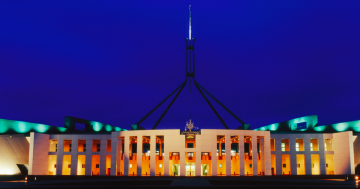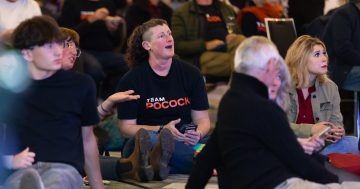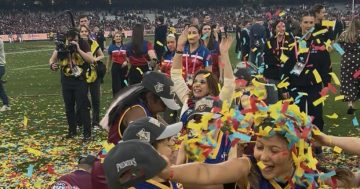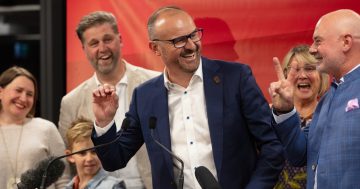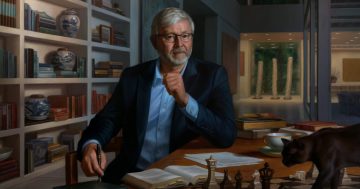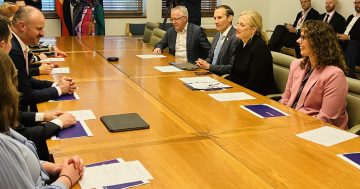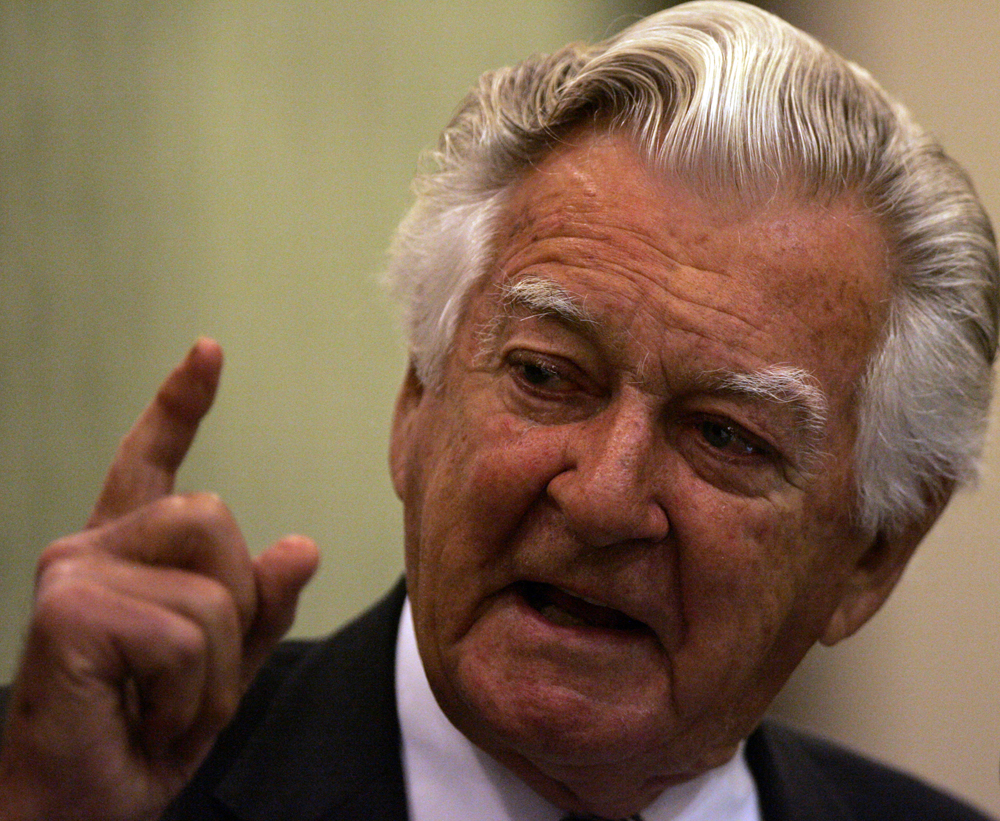
Was Bob Hawke “as good as you get” for a prime minister? Photo: Eva Rinaldi (Creative Commons).
When it comes to politics, I’ve learnt to value good policy, transparency in consultations, quality communications and integrity – not political parties.
I was one of those who followed one side of politics, part of a political tribe. I grew up in a good Labor family and back in the day, my Dad was on the AWU executive when unions had significant membership.
No matter what my side did, they were the only choice. If someone senior caused a scandal, I’d look the other way or say “the other side is worse”. My side was right, come hell or high water.
Eventually, I discovered my side was imperfect and no longer ‘my side’. Now I know all political parties are good and bad – too often the latter.
What a freeing time it was. I could judge policies on what they were, not who developed them. My mind was opened.
My values, developed from my upbringing, education and ongoing life experiences didn’t. The blind allegiance altered gradually, then exponentially.
Gough Whitlam is a Labor icon. Mention his name and supporters’ eyes sparkle with the joy of his memory. He certainly did some great things and changed Australia for the better. But his was one of the worst administrative governments ever.
Bob Hawke, Paul Keating and members of Hawke’s first ministries learnt their lessons well from the Whitlam years. The Hawke government was as close to ‘as good as you get’.
The ministries were full of worthy, high-performance ministers who were allowed to do what was necessary to bring the Australian economy into the 21st century on a high note.
I see John Howard as both exceptional and dreadful. Mr Howard had extraordinary gumption and courage. He bought in stringent gun laws after the Port Arthur massacre against some staunch and nasty opposition.
He also went to his first re-election campaign with the introduction of the GST as the main policy. Amazing and successful in both cases.
Then he supported a war and invasion of another country and won an election by lying about the behaviour of refugees in the ‘children overboard’ affair.
He eventually lost government and his own seat due to, among other things, a blind belief in laissez-faire economics which favoured big businesses over small business people who vote.
The biggest change came when I became an advocate for the small business community and started working closely with politicians, their advisers, the public service and the media.
What an eye-opener to reality!
All political parties have people who are unpleasant or incompetent. Yet most politicians I met were good people. With expert support from public servants, we worked constructively on policy issues and treated people with respect.
I eventually represented the small business community through the Council of Small Business Organisations of Australia (COSBOA). I found small business people were more politically diverse than most people believed – they didn’t just unquestioningly vote Liberal.
The organisation I worked for had to be apolitical to have real influence and be credible in the media. We worked hard to achieve that reputation.
I discovered it wasn’t just the politicians’ view of COSBOA or me that counted, but the focus groups, run by pollsters for the major parties and major institutions.
Let’s talk about the focus groups.
Political focus groups are run by expert pollsters to garner information on what the swinging voters are thinking. They are quite scientific in their operation and apparently work successfully to discern what people like and want.
Various political parties’ focus groups found small businesses worthy and valuable. Pollsters described it as ‘having a halo around them’. Excellent for small business advocates!
During focus groups, the convenor would hold up photos, noting people’s verbal and non-verbal reactions. I was surprised when told that when my photo appeared, they’d say, ‘Oh yeah, that’s that small business guy’, and smile.
I wasn’t easily identified as one party or the other and when working with the media, various journalists said they couldn’t pick my politics either.
It’s the same for many journalists – it’s often hard to pick their politics. Yet people from political tribes will demand mainstream journalists never praise the other side’s policies and always praise their side – otherwise, they are obviously a stooge and will be attacked.
Next, the non-tribal independents in the federal parliament are an interesting group, there for their electorates.
Interestingly, in the ACT Assembly, the Labor government has been in power for so long – 23 years – that even Labor members want to get good quality independents into the assembly.
I value good policy, transparency, quality communication and integrity – not the parties. I’m free and it’s empowering. When someone says, “But the other side is worse”, ask them, “Is this a race to the bottom?”
Peter Strong has announced his candidacy as an independent candidate for the ACT Legislative Assembly.
Original Article published by Peter Strong on Riotact.


